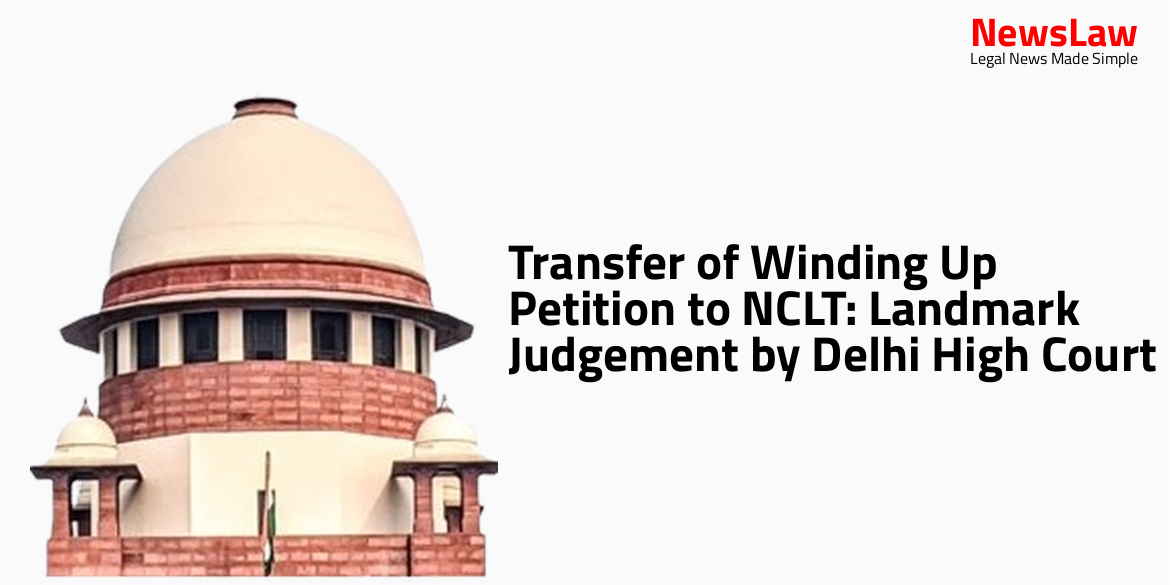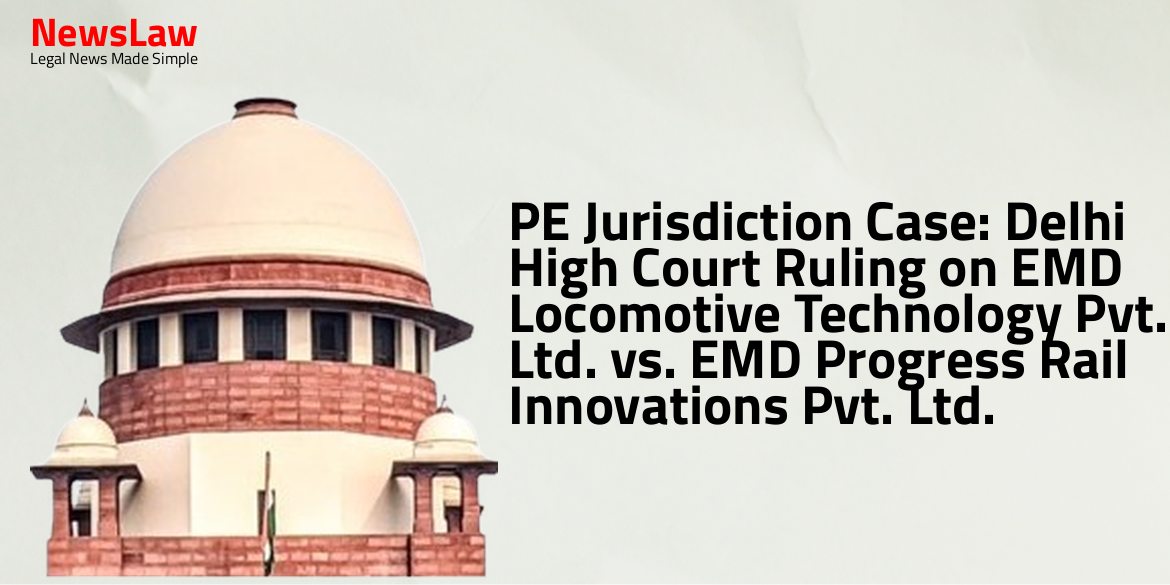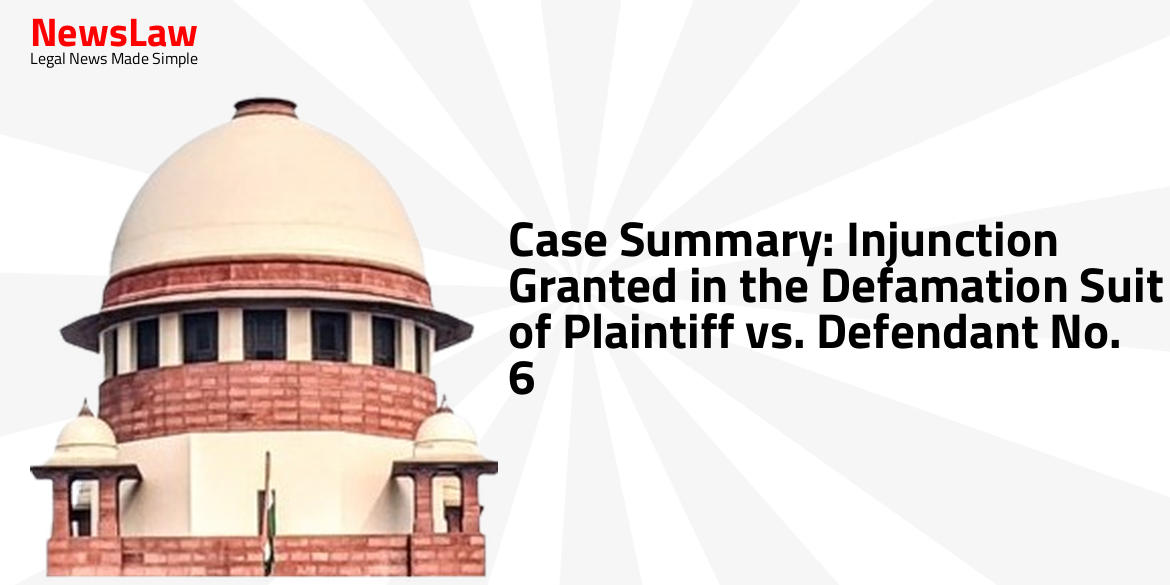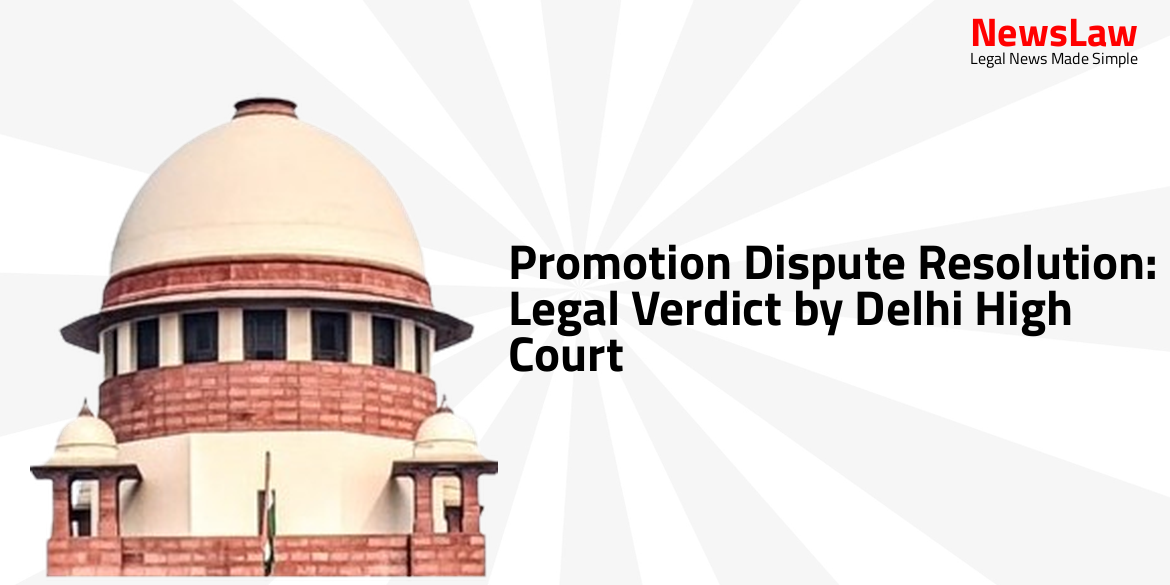In a recent ruling by the Delhi High Court, a crucial decision was made regarding the transfer of a winding up petition to the National Company Law Tribunal (NCLT). The case involved M/s. Olive Telecommunication Private Ltd. and a petition filed under Sections 433 (e) and (f), 434, and 439 of the Companies Act, 1956. This judgement sets a precedent for similar cases in the future, providing clarity on the jurisdiction and process of transferring winding up proceedings. Read on to learn more about this significant legal development.
Facts
- The company petition is filed under Sections 433 (e) and (f), 434, and 439 of the Companies Act, 1956.
- The petition seeks the winding up of M/s. Olive Telecommunication Private Ltd. due to non-payment of Rs. 89,48,638/- as the principal amount.
- The petition is based on a Master Service petitioner agreement between the parties.
- The rules for transfer to NCLT include compulsory transfer and discretionary transfer by the Company Court.
- The respondent company’s audited balance sheet shows a liability of Rs. 24,73,438/- to the petitioner but does not include the total due amount of Rs. 50,43,071/- with interest at 15% per annum as per an Arbitral Award.
- Service of the petition was done on 29.10.2016, before the Companies (Transfer of Pending Proceedings) Rules, 2016 came into effect on 15.12.2016.
Analysis
- The winding up proceedings under Chapter XX of the Companies Act, 2013 involve several stages with the Tribunal retaining power even after admission.
- Post admission of a winding up petition, the Company Liquidator can manage the company’s business for beneficial winding up, including selling it as a going concern.
- The Company Court must decide whether to proceed with winding up or transfer proceedings to the NCLT based on irreversibility of the stage reached.
- The decision to transfer a winding up petition to the NCLT is within the Court’s jurisdiction and can be done suo moto.
- The present petition has not advanced towards winding up, making it suitable for transfer to the NCLT for resolution under the Code.
- No substantive orders have been issued for winding up, and the matter is at a nascent stage.
- Irreversible actions like actual sales of properties have not occurred, allowing for transfer to the NCLT.
- In a winding up proceeding where the petition has not been served pre-admission, it is compulsorily transferable to the NCLT for resolution under the Code.
- The transfer of a petition at the discretion of the Company Court is guided by the fifth proviso to Section 434(1)(c) of the Companies Act of 2013.
- Since the service was done before the Transfer Rules came into force, the provision for compulsory transfer does not apply to the present petition.
- Appellants may file an appeal within sixty days if prevented from filing within the specified period
- All proceedings under the Companies Act, 1956 to be transferred to the Tribunal, including arbitration, compromise, arrangements, and winding up of companies
- The Tribunal may proceed with transferred proceedings from the stage before transfer
- Proceedings relating to non-winding up cases not reserved for orders by High Court to be transferred to the Tribunal
- Proceedings under the Companies Act, 1956 not transferred to the Tribunal to be dealt with as per the Act and Rules
- Proceedings of voluntary winding up where notice given but company not dissolved before April 1, 2017, to be dealt with under the Companies Act, 1956 and Rules
- Parties to pending winding up proceedings may apply for transfer to the Tribunal, to be dealt with as an application for corporate insolvency resolution process under the Insolvency and Bankruptcy Code, 2016
- Central Government authorized to make rules for timely transfer of matters from Company Law Board or courts to the Tribunal
- Winding up proceedings pending before High Courts should be transferred to NCLT if they have not progressed to an advanced stage.
- Reliance can be placed on the decision of the Supreme Court in Action Ispat and Power Private Limited v. Shyam Metalics and Energy Limited.
Case Title: ALLEGIS SERVICES (INDIA) PVT. LTD. Vs. OLIVE TELECOMMUNICATION PRIVATE LTD. (2024:DHC:3636)
Case Number: CO.PET.-594/2015



